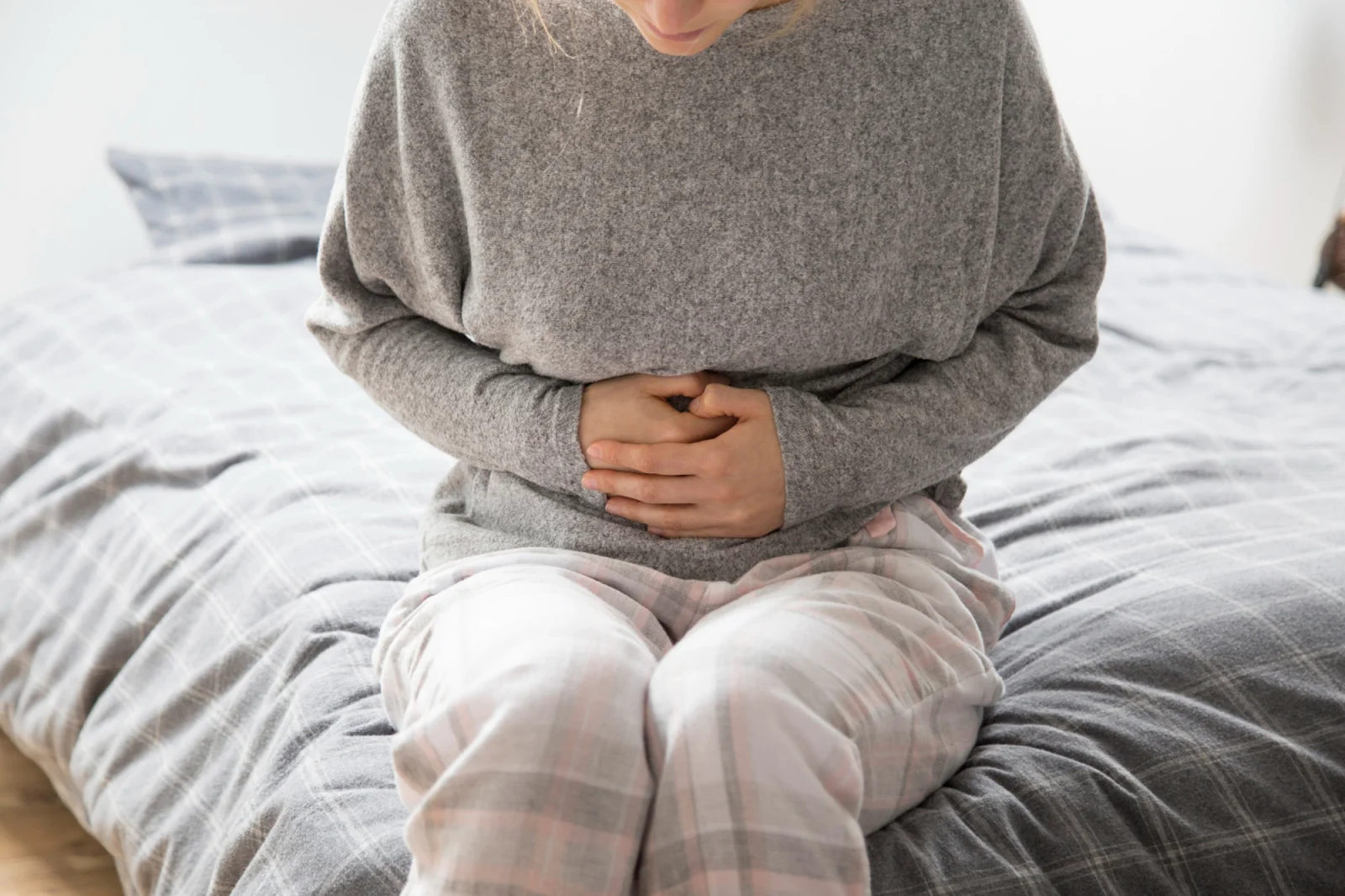In current times, our intuitive health takes a back seat to more immediate concerns such as career, family, and hobbies. However, it is important to keep our guts healthy.
Being able to recognize the signs of an unhealthy gut can help you take steps in the right direction for your digestive health, which ultimately affects overall health.
Understanding the microbiome
Before getting into the signs of an unhealthy gut, it’s important that you understand what the term “microbiome” means. In short words: The word “microbiome” refers to all the tiny living organisms that reside in us – bacteria, viruses, fungi… yes! There are trillions of them!
These little guys live on our skin and in our mouths, but most importantly (and plentifully) they live inside our guts. We need them because without these guys we wouldn’t be able to digest food properly; fight off infections or diseases like cancer; make vitamins such as vitamin K among others.
Not having enough good bugs around is bad news because it means things can get out of control pretty fast, leading us into trouble.
10 signs of an unhealthy gut
Understanding the signs of an unhealthy gut is the first step towards recovery and well-being. Below are ten red flags suggesting that your digestive tract may be in need of some attention:
Fatigue
This isn’t just about feeling tired all day long – this type of tiredness doesn’t improve even after sleeping through the night! One possible cause could be dysbiosis where there’s too many “bad” bacteria relative to “good”.
The other reason would involve inflammation somewhere else within the body being communicated via nerves as a signal perceived by the brain, hence giving rise to feelings akin to weariness or lightheadedness.
This may be further fueled by an inadequate diet lacking nutrients necessary for optimal functionality, coupled with the pathogenic presence within the intestines, thereby lowering overall energy levels.
Diarrhea
Persistent or recurrent loose bowels are sure signs of an unhealthy gut. It could be due to infections like food poisoning caused by bacteria such as salmonella and E.coli.
Taking too many antibiotics, which kill off good flora along with bad ones, can upset the balance, leading to the proliferation of harmful microbes like clostridium difficile. This can cause an infection known as pseudomembranous colitis.
Additionally, having chronic conditions like irritable bowel syndrome (IBS), characterized mainly by abnormal contractions within the large intestine, can result in various symptoms. These include alternating spells between constipation and diarrhea, often accompanied by cramping pain in the lower abdomen region, etcetera.
Sugar cravings
Do you find yourself reaching for another piece of chocolate every afternoon? Maybe it’s not just lack of self-control. You need more energy because your body is working overtime to deal with all the toxic waste being produced by an overgrowth of yeast called Candida albicans, which feeds primarily on sugar! This leads into the next point…
Constipation
Constipation is a common sign of an unhealthy gut, occurring when the digestive system can’t get rid of waste. Inadequate fiber in the diet and dehydration are common causes of this problem because it makes stools bulky for easy passage through intestines or hardens them so they become difficult to push out.
Furthermore, slow-moving guts allow bacteria more time to ferment food which leads to excessive gas production thereby causing bloating and discomforts. Another sign of an unhealthy gut is dysbiosis; this happens when harmful microbes take over beneficial ones, thus affecting their muscle contractions within your large bowel (colon).
If not treated early enough, chronic constipation could result in impacts such as fecal impaction or even an increased risk of developing colorectal cancer.
Bloating
Another sign of an unhealthy gut is feeling bloated all the time. Bloating refers to the sensation of being full or swollen in one’s abdomen area, usually caused by too many carbohydrates that cannot be absorbed properly by small intestines but instead fermented by bacteria residing in large intestines; hence releasing gases during such process.
Also, abnormal levels of gas can be produced due to slow digestion resulting from conditions like SIBO where there are more than necessary numbers of microorganisms living within our gut walls, which may lead us into having a sluggish digestive system sometimes known as hypochlorhydria.
Additionally, food moving less fast than required through our alimentary canal allows for accumulation of gas, hence making us feel bloated every now and then.
Persistent bloating interferes greatly with life quality since it brings about discomfort besides being socially embarrassing; moreover such condition signifies poor digestion or inefficient utilization of nutrients by body cells
Skin irritation
Problems with the skin such as eczema, acne or psoriasis are not only superficial but can be sign signs of an unhealthy gut. The “gut-skin axis” is a term often used to describe this connection; it demonstrates how inflammation in your intestines can lead to whole-body problems that show up as rashes on your skin.
When there’s an imbalance of bacteria in the gut, this can cause inflammatory cytokines to be produced which escape into the blood stream and target our skins, leading to irritations or flare-ups. Also known as increased intestinal permeability syndrome (IPS), leaky gut allows toxins and undigested food particles into our bloodstream, which further aggravates these conditions.
What we eat also matters; diets high in sugar and fat promote inflammation, thereby worsening skin health. Management typically involves addressing dietary patterns, enhancing intestinal wellness and reducing inflammations.
Autoimmune conditions
There is growing evidence linking autoimmune diseases like Hashimoto’s thyroiditis, rheumatoid arthritis, and Type 1 diabetes mellitus with signs of an unhealthy gut.
An unhealthy gastrointestinal tract may become more permeable, a condition known as leaky gut, where bacteria and toxins can pass through into the bloodstream.This triggers immune responses that mistakenly attack some cells as foreign invaders.
Additionally, imbalances among the different types of microbiota present in an individual’s GI tract can lead to abnormal immune system regulation. This may cause either hyperactivity or failure of the immune system, thereby contributing to the development of autoimmune diseases.
These are complex diseases involving multiple genes and influenced by environmental triggers. Some forms might be prevented through interventions aimed at improving enteric health.
Food intolerances
Sometimes we cannot digest certain meals, which is a typical sign of an unhealthy gut. A sickly alimentary canal lacks enough enzymes required for breaking down specific nutrients, thus leading towards indigestion after eating such foods like milk products which cause lactose intolerance or cereals that cause gluten intolerance.
As a result, individuals may suffer from different conditions such as bloating, gas, diarrhea, and abdominal pain. If you cannot process some food components, it’s a well-known sign of an unhealthy gut; these are not allergic reactions but rather food intolerances, since immune responses do not take place here. Instead, intestines fail to work properly.
This issue is due to the inability of intestinal tracts to perform these functions properly. Therefore, relieving them may involve the restoration of gut health through probiotics, dietary adjustments, and enzyme supplements to better handle problematic meals.
Bad breath
Halitosis, or chronic bad breath, can indicate more serious problems related to digestion beyond poor oral hygiene habits; it might suggest malfunctioning digestive processes where food particles are not adequately broken down, leading to the growth of bacteria producing foul-smelling substances both in the mouth and other parts of the GI tract.
For instance, people suffering from GERD often experience acid reflux coming back into their esophagus or even reaching the mouth, thereby causing discomfort as well as adding unpleasant smells originating from these areas, a condition known as ‘reflux halitosis’.
Treating the root causes thus involves optimizing digestive health via dietary modifications, such as taking probiotics, along with medical interventions targeting underlying conditions like gastroesophageal reflux disease (GERD).
Mood swings and mental issues
The digestive system has a strong influence on our mental well-being. The gut-brain axis is an example of how closely intertwined these two systems are. An imbalanced microbiota in the intestines, one of the signs of an unhealthy gut, will severely disrupt the synthesis and functioning of neurotransmitters like serotonin.
This can lead to wide fluctuations in moods, sometimes resulting in depression and anxiety. Additionally, chronic inflammation within the gut might generate cytokines that impact brain activities, potentially resulting in cognitive dysfunctions combined with mood disorders.
To deal with such symptoms, it is necessary to take care of our inner health through a balanced diet rich in fibers, prebiotics, and probiotics, while ensuring that traditional methods used for treating various psychological problems are maintained continuously alongside each other.
Ways to improve gut health
Developing an excellent digestive system involves using different methods, each focusing on a specific aspect of gut performance:

Have a wide range of foods
Your gut’s microbiome can become more diverse if you choose to include many types of food in your diet. This is important because various bacteria populations are fed with different nutrients and fibers from assorted meals.
For this reason, ensure that you take vegetables, fruits, whole grains, legumes and lean proteins since each category has its own kind of fibers which promote distinct good bacteria strains.
Also consider having seasonal and locally produced foods as they introduce natural variations beneficial for gut flora diversity.
Take enough fiber
Fiber is necessary for healthy digestion, as it provides food for helpful bacteria found in the digestive tract. These microorganisms ferment dietary fiber into short-chain fatty acids (SCFAs), which contribute significantly to gut health by preventing inflammation, a key sign of an unhealthy gut, among other functions.
To increase fiber intake, consume nuts; seeds; berries like raspberries or strawberries; legumes such as lentils or black beans; whole grains like brown rice or quinoa; green leafy veggies including kale or spinach etcetera.
However, do not rush when adding more roughage to your system, as it can cause bloating. Gradually incorporate high-fiber meals while drinking adequate water, so that they can easily pass through our guts.
Give probiotics a shot
According to the World Health Organization, probiotics are “live microorganisms that, when administered in adequate amounts, confer a health benefit on the host.” The most common use of these bacteria is in restoring good gut flora. There are two ways for us to get our daily dose: fermented foods or supplements.
Supplements come in capsules, tablets or powders and have specific strains of bacteria known to help digestion, such as Lactobacillus acidophilus and Bifidobacterium bifidum. When choosing which one to take, make sure it has live organisms inside them because dead ones won’t have any effect on your body. It’s also good if they’ve been tested clinically like Bowtrol Probiotics so you can be sure about their efficiency.
Aside from providing relief for conditions like IBS (Irritable Bowel Syndrome) or IBD (Inflammatory Bowel Disease), taking probiotics regularly may also help treat infectious diarrhea. They can boost the immune system and might even decrease the severity of allergies if administered early enough during childhood years, a time when conditions such as eczema often begin to appear more frequently.
Make fermented foods part of your diet
Fermented foods have naturally occurring beneficial bacteria, which can help remove signs of an unhealthy gut by increasing biodiversity within this organ system. Some examples include yogurt, kefir, sauerkraut kimchi (a spicy Korean dish made from fermented cabbage) and tempeh (an Indonesian soy product).
These introduce probiotics into your gut balancing out its flora and aiding digestion processes, thus alleviating problems associated with poor nutrient absorption sometimes experienced alongside imbalances in intestinal microbial communities. You should start consuming small portions till you allow your stomach adjust if you’ve never eaten anything like these before.
Colon cleansers might help
Colon cleansers are substances or treatments designed to remove toxins and waste from the colon, which can be used for weight loss, detoxification purposes and enhancing digestive health.
However, one should exercise caution when using them since they might cause unintended side effects if not handled properly. These include, but are not limited to, electrolyte imbalance, dehydration, and disturbances in normal intestinal flora that eventually lead to constipation and other signs of an unhealthy gut.
For many people, fiber-rich diets with enough intake of water and regular exercise would keep their colon clean, so they don’t have to resort too frequently or rely too much on enemas. Overuse of enemas may eventually weaken bowel muscles, causing the need for stronger laxatives and potentially more signs of an unhealthy gut.
Restrict Artificial Sweeteners
The latest scientific research indicates that artificial sweeteners might not bode well for the gut microbiota and could lead to glucose intolerance. They can change the mix of bacteria in our guts in ways that raise the risk of metabolic diseases.
You could try using small amounts of natural sweeteners like honey or maple syrup, or even better, eat whole fruits to add sweetness to meals and snacks instead.
Take lots of water
Watering being sufficient is an easy but effective way to reduce signs of an unhealthy gut. This is because water helps in dissolving fibers and sugars within the tract, making it easier for them to be absorbed into our bodies while preventing blockage by allowing food to move through freely.
At least 8 – 10 glasses per day should be consumed, but more may be taken when one is involved in activities or living under hot conditions. Herbal teas can also serve as an alternative option for hydration purposes.
Control stress levels
Your gut flora thrives on peace; hence chronic stress can lead to leaky-gut syndrome which enables harmful substances to enter bloodstream easily causing widespread inflammation throughout body systems including joints where they manifest themselves as arthritis symptoms among others such as IBS.
Mindfulness meditation, yoga exercises combined with deep breathing techniques have been known over time not only to lower anxieties but also foster healthy bowel functions thereby keeping digestive tract intact always. Regular physical activities too help reduce anxiety levels, thus promoting general healthiness within bowels too.
Get sufficient rest
Resting enough is necessary if you would like to combat signs of an unhealthy gut. Bad bowel health can be caused by lack of sleep, and one symptom is higher levels of inflammatory markers throughout the body.
Strive for seven to nine hours each night, making sure they are of high quality, too. Regularizing sleeping patterns while establishing a routine before bedtime might improve sleep, therefore supporting the health of guts at large.
Avoid Unnecessary Antibiotics
Antibiotics have the ability to do much more than just kill harmful bacteria in our bodies; they also wipe out many good ones that make up most parts, such as our gut flora. You should only use them when needed or prescribed by doctors because unnecessary exposure may lead to antibiotic resistance development, which will give rise to superbugs eventually (check how to restore gut health after antibiotics).
Talking with healthcare professionals about whether taking probiotics during or after treatment could help restore healthy microbes would be wise, especially considering the potential damage that can be done to the gut microbiome by these drugs alone.
In summary, recognizing signs of an unhealthy gut can be pivotal towards achieving overall well-being. Remember that feeling good physically depends on your mental state and vice versa—so always prioritize inner wellness first! If you ever feel like something isn’t quite right with your digestive health, take note of these suggestions and seek medical advice immediately.
Addressing issues early can prevent more serious complications. Therefore, this information might help not only those who suspect their digestive system needs attention but also those around them, because caring for this area can significantly affect overall health and quality of life.





